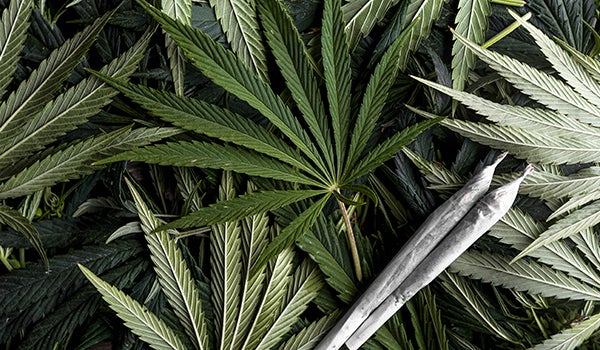Buchanan City Commission considers retail marijuana tax
Published 11:00 am Wednesday, August 12, 2020
|
Getting your Trinity Audio player ready...
|
BUCHANAN — Buchanan City Commissioner Sean Denison has come up with a new idea to help offset potential city budget shortfalls.
He is proposing that the city look at levying a 2 percent tax on local retail marijuana and cannabis businesses to raise as much as $200,000 or more annually.
Denison brought up the proposal at Monday’s Buchanan City Commission meeting and asked city staff to look into the feasibility of instituting such a tax. City Manager William Marx said Tuesday that he will start researching the topic and bring information back to the commission.
“What will the commission do? I don’t know, but I am tasked with researching the establishment of a local tax on the sale of marijuana, cannabis and possibly CBD products,” Marx said.
Denison’s proposal is to impose a 2-percent tax on cannabis and marijuana sales in the city. Under his plan, monies raised would be directed to help pay for “quality of life” type improvements such as those for parks, streets, police and fire services and economic development.
Denison said Tuesday that he came up with the idea because the city could be facing some budget shortfalls next year with the state having revenue problems due to the COVID-19 pandemic. He noted that 25 percent of the city’s general fund revenue comes from the state and amounts to around $600,000.
“We are being told that we can expect at least a 17-percent reduction in funds next year due to the state seeing much lower tax revenues,” Denison said. “We have to figure out how to make this up and be proactive about it as well.”
He said that the city is about to have four dispensaries selling marijuana and cannabis products in the city. He came up with the $200,000 number by estimating that the businesses have sales of $10,000 a day. That would mean $10.4 million a year, and a 2-percent tax would bring in $208,000 annually to the city.
“That would cover the shortfall that we are expecting in lost revenue from the state,” he said. “Obviously, the amount of revenue we collect would depend on the success of our establishments.”
“The tax that I am proposing is merely a way for the city to capture a small percentage of this growing industry, and a way for our local marijuana businesses to show their support for our community,” he added. “I would propose that the new tax be used to support quality of life initiatives.”
Projects he put in that category include making improvements and potential additions to the McCoy Creek Trail, street and sidewalk improvements, upkeep and upgrades to city parks and the creation of new bike lanes. He recommended projects that would “promote a healthy lifestyle and highlight our outdoor activities.”
“Not only will this directly influence economic development, but the revenue could also be used to potentially help us acquire and compensate an economic development professional,” he said. “It is my firm belief that by using the revenues generated by such a tax on quality of life initiatives, we can make Buchanan the envy of southwest Michigan. People will seek us out as a place to live and work and invest.”
The medical and recreational marijuana industry in Michigan was initially considered to be a revenue generator for not only the state but local municipalities. Since then, the excise tax revenue estimates for what municipalities will get have gone down as the state has to recover all of its costs and collect its taxes before any other entity sees any.







